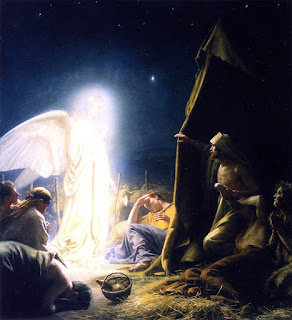God's King on Zion
“As for me, I have set my King
on Zion, my holy hill.” - Psalm 2, ESV
Have you ever tried really hard to do something only to fail miserably? Whether it's making a cake, working hard to succeed at a sport, trying to build a career in your chosen field or something else, it can be frustrating to invest many hours or even years into something only to have it fall apart, despite your best efforts. Sometimes it can even look like something is working for a time, only to have it collapse in disaster.
Of all the futile efforts in the history of humanity, none can compare to the world's ongoing rebellion against God. Humanity's desire to overthrow God's rule is unmatched in terms of length of struggle, amount of effort invested, degree of apparent success achieved and ultimate utter futility. For centuries, the world has been trying very hard to deny that God exists, to live as if He didn't, or to re-shape Him after our likeness and preferences.
Psalm 2 opens with a description of this world-wide, ages-long rebellion against God. It then presents God's response: Laughter and derision. God is amused by the futility of mankind's efforts and replies with an absolute declaration: "As for me, I have set my King on Zion, my holy hill." Fallen humanity is marked by one core desire: Each of us wants to be our own king, our own ruler. But God says He has already enthroned His king.
Psalm 2 is a prophecy. Written hundreds of years before the birth of Christ, God had not yet enthroned Jesus as King of kings and Lord of lords. Yet in the eternal decree of God, Jesus' enthronement was already an accomplished reality.
Hundreds of years later, when Jesus was born, King Herod represented he plotting of Psalm 2 when he schemed to destroy Jesus. He failed, of course. Years after King Herod the Great, Herod Antipas and Pontius Pilate were used by the Sanhedrin as tools to destroy Jesus again, this time on a cross. They appeared to have succeeded brilliantly. Some observers even took Jesus' final words, "It is finished," as an admission of defeat. They were wrong. He meant "accomplished" as in "paid in full."
Our Advent lesson for today is simple and powerful: God's plans and purposes may be opposed, but they are never frustrated. God never fails. His decrees are so certain He can issue them publicly hundreds of years in advance. His power never dims, His wisdom never falls short, His arm is mighty to save and establish His kingdom forever!
So, how do we respond? We need to heed the invitation that closes Psalm 2, that we may receive the blessing promised:
Now therefore, O kings, be wise;
be warned, O rulers of the earth.
Serve the Lord with fear,
and rejoice with trembling.
Kiss the Son,
lest he be angry, and you perish in the way,
for his wrath is quickly kindled.
Blessed are all who take refuge in him.
Heavenly Father, may we hear the gracious call to serve You with fear and trembling, for You are HOLY. May we answer Your invitation to kiss Your Son in honor and worship. May we find the blessing of refuge in Him and Him alone! In Jesus' name, Amen.
One of my favorite songs based on Psalm 2 is "The Kings of the Earth." Here's a clever video of the song, starring Disney villains:





